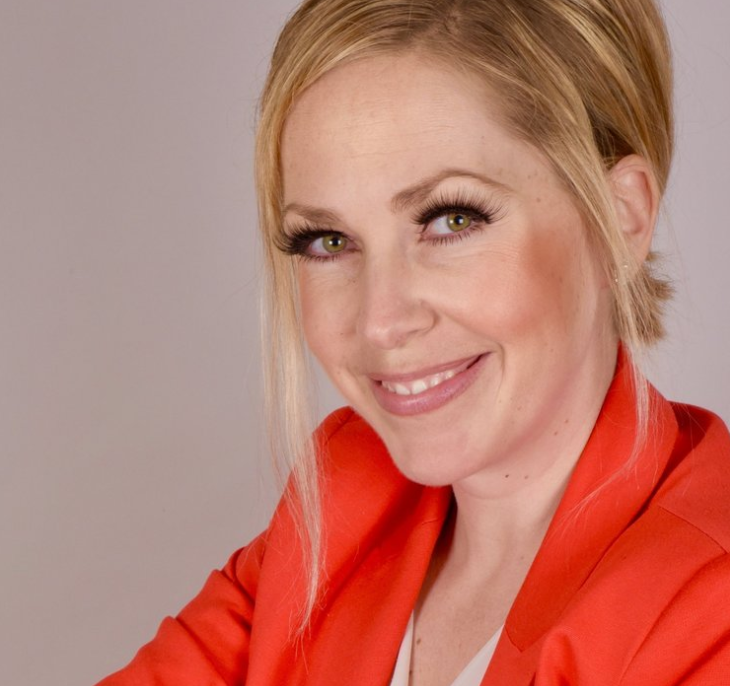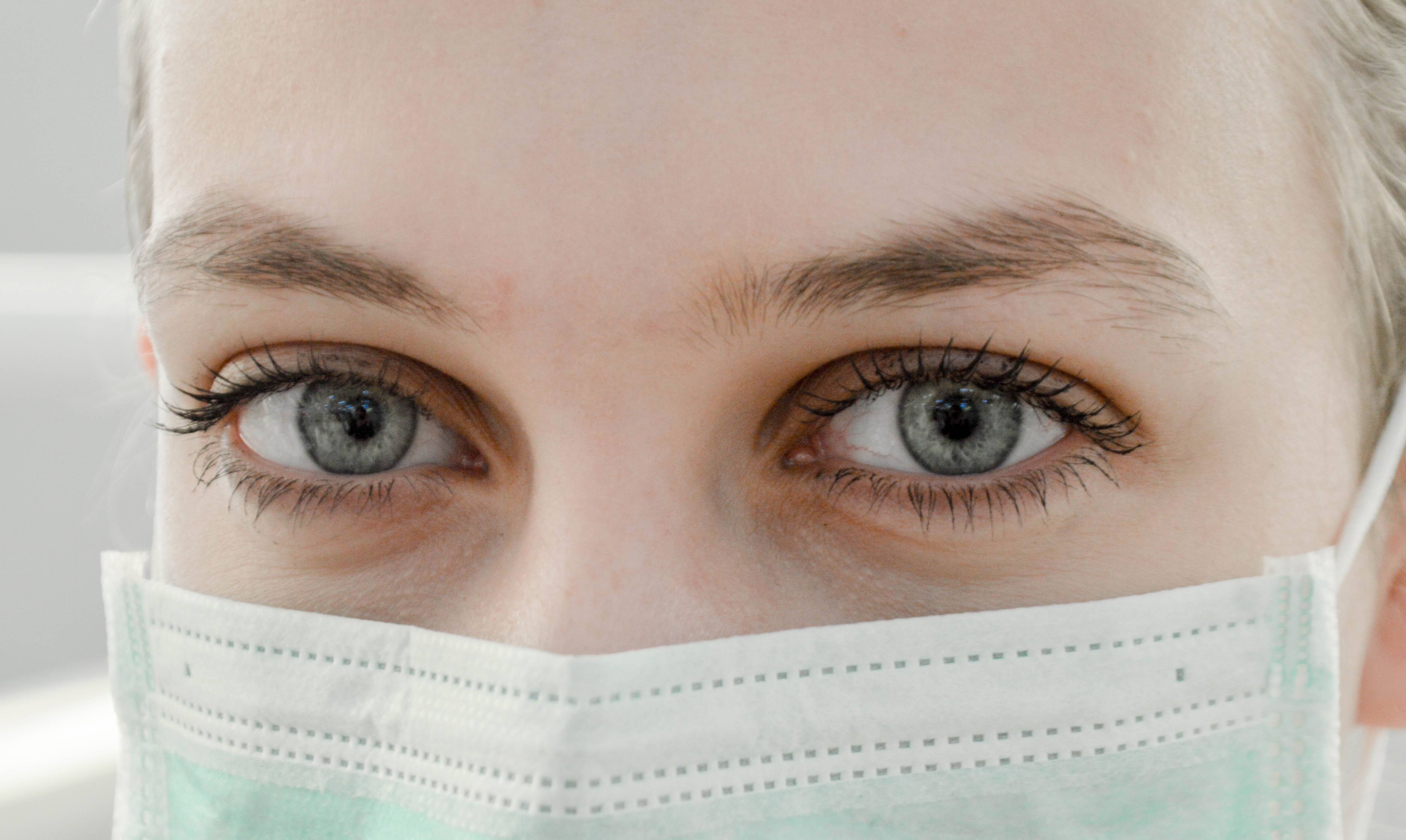Mirror, mirror, on the wall, who is the fairest … Nope. Not today. I look at my reflection, my blood-shot eyes and crazy morning hair staring back at me, signs of an anxiety-ridden, sleepless night. My roots have started growing out, revealing what I’ve jokingly dubbed the “quarantine ombre.” I haven’t taken the time to throw my hair into 1940s victory curls in what seems like ages – I mean, why should I? It’s not like I have an Automobile Museum Gala to attend to or a pinup photo shoot with my friend Lorraine. It’s been two months since I treated myself to a mani-pedi and I’ve either lacked the motivation to ‘put my face on’ or decided it was more prudent to conserve what little mascara I had left, just in case that, too, was eradicated from the store shelves under this New Normal.
Side bar: Did you know there’s a shortage of female hygiene products now? Turns out that, as with other high-demand products, women have been stockpiling menstrual pads and tampons leaving those with lower incomes without those basic essentials. I guess I belong to that category now.
It had been a while since I last examined my face so closely, my green eyes reflecting an emptiness and a sadness I hadn’t seen since my break-up with Jason 12 years ago. The only difference was that, back then, I didn’t recognize myself. The emotional abuse I had endured over the course of our year-long, tumultuous relationship had left me feeling like a pile of ashes, remnants of a previous identity, one that he had so meticulously chipped away at, until there was nothing else left to take. This time, though, I knew who I was. I knew my value and what I had to offer to the world. I just couldn’t see a way forward. Everything seemed so hopeless and desperate. Even the rainbow that usually appeared on my mantle every morning, like a sign from God that all was still good in the world, was nowhere to be found.
My gaze wandered from my eyes, to my nose, to my lips, to my skin. I looked old and tired. My face seemed to reveal more wrinkles than usual, but then again I hadn’t had a “beauty treatment” in a while. And, every time, I hated myself for being so vain. Why couldn’t I just accept the fact that I was aging? How could I have allowed myself to fall into that ridiculous advertising trap? I always thought I was better than that.
I observed the color of my skin. It’s still as fair as it used to be when I was a child. Not even the countless summers I spent soaking in baby oil to burn it to a crisp made a difference. If anything, it probably brought me one step closer to skin cancer. (Plus, it added more moles and sun spots – though I prefer to think of them as “beauty marks.” Hey, anything to make you feel better.) It’s weird to think that being white – particularly the kind of translucent white that I was born with – was considered so undesirable back then. Of course, that was in the 90s. It wasn’t until much later that I discovered the privilege I enjoyed as a white woman in America: the privilege of living in a system that was made for people just like me.
But, here we are, in the age of COVID-19, where the whole world is participating in one twisted social experiment. As one doctor recently noted in the New York Times, the virus affects people like a roll of the dice. We just don’t know what will happen. If you become infected, will you get sick? Will you survive? Will you die? Sure, there have been studies that women and minorities have been disproportionately affected by the virus – mostly due to socioeconomic reasons. But all of us are in the same boat when it comes to our risk for infection.
Few of us have had to confront our own mortality, nevermind question the way we’ve been living our lives – until now. More than 40,000 Americans have died from the coronavirus to date, and more will perish as we roll through waves of infection and reinfection over the coming year, probably longer. Truth is, we’ve been living a life of extreme privilege and it is only now that we are coming to terms with who we really are. Once we strip away the brand-name clothes, the fancy shoes, the make-up, the acrylic nails, even the hair dye, and any of the other cosmetic enhancements we subject ourselves to so we can feel beautiful, what do we have left?
If we are being honest with ourselves, we’ve been using beauty treatments, shopping sprees – even ridiculous documentaries like The Tiger King – as excuses to run away from our true selves. For years, we’ve filled our days with meetings, ‘to do’ lists, appointments, and so many other distractions, misguided in the belief that keeping busy while catering to some artificially constructed image of beauty is the only way to derive any purpose or value as a human being. But that’s just it: we’ve forgotten what it’s like to actually just be. The thought of spending any time alone, by ourselves, in complete vulnerability, with our thoughts, our fears, our hopes, our dreams – all of the good, the bad, and the ugly – is just unacceptable. God forbid we are ever confronted with the bane of our own existence. Better to grab another drink from the fridge, order a pizza, and binge-watch the next best series on Hulu or Netflix (and, trust me, I’ve been there).
Yet, at a time when social distancing has become the norm and we no longer have the luxury of engaging in traditional human contact – be it a handshake, a high-five, a touch on the shoulder, or a hug; when economic devastation has forced us to reduce spending, ration our food, and cut down on our lavish lifestyles; when millions of people are faced with the risk of losing everything: their jobs, their income, their homes, maybe even their loved ones, we are being stripped down to our basics. Like a scene in Naked and Afraid, the coronavirus is strong-arming us into reconsidering who we are at our core, as people. It’s forcing us to revisit the many masks we wear, the roles we play, and the stories we tell ourselves, all of which impact our perception of ourselves and of others. Will we continue to focus on external validation to make us feel whole or will we see beyond that and recognize that we are more than our beauty, our appearance, or our purchasing power?
Eckhart Tolle, best-selling author of A New Earth, says that it’s important to honor the role you have in this world but that you should remember it isn’t your identity. “Knowing yourself deeply has nothing to do with whatever ideas are floating around in your mind. Knowing yourself is to be rooted in being instead of being lost in your mind” (emphasis added). Your true identity, he postulates, is a higher consciousness that is linked to the Universal Source – think of it as love or energy – connected by the bond of our shared humanity. Everything else, he suggests, is identification with physical form.
I think about this often as I contemplate the sad state of the world. Perhaps COVID-19 is the universe’s way of reminding us of what it means to be human, of instilling kindness and compassion, of encouraging us to be humble, and – as I am reminded of the word “encourage,” a derivative of the French coeur, or heart – of what it means to show up with our whole hearts, as human beings. When was the last time we truly looked into another person’s eyes and saw her for who she really is? When did we last take the time to acknowledge the homeless man on the street? When was the last time we got to know our neighbors or asked our co-workers how they were doing – and I mean, how they were really doing?
For as long as we can remember, we’ve been socialized into hiding our true selves. We’ve learned to adapt to different life circumstances by wearing different masks. Going to work? Better wear that stuffy business suit that makes you look serious. Ready for a night out on the town? Slip into that little black dress that will accentuate just the right curves. Talking to your boss? Make sure to use the right corporate lingo to show her you belong. Trying to get out of a speeding ticket? Bat your eyelashes, twirl your hair, flash your smile, and pretend you just didn’t know better (I’ve never done that.)
For a few weeks now, state governments have mandated various levels of protection to “flatten the curve” and prevent the spread of the deadly coronavirus. Routine trips to the grocery store, which we previously took for granted, are dominated by fear and anxiety (if you don’t know what I’m talking about, just watch the movie Outbreak). Cloth masks, bandanas, and scarves have become the new style, covering the very first thing we see when we wake up in the morning and look into the mirror: our faces, representations of our identity. And, yet, in the midst of this pandemic that is threatening our very being, we are presented with an incredible opportunity: to show the world who we really are. Perhaps now that we are forced to wear masks to protect our health, we can finally shed those other layers that have prevented us from revealing our true selves.


